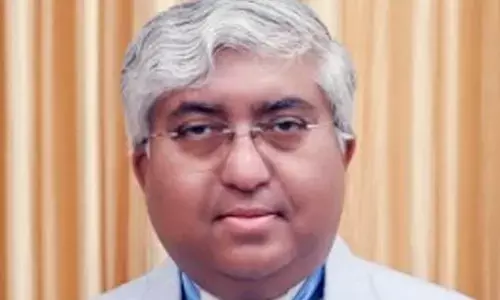Financial plan a blueprint for one's future growth

People do question me on why does one need a financial plan? I have encountered many who have done their bit of investment which helped them create assets
People do question me on why does one need a financial plan? I have encountered many who have done their bit of investment which helped them create assets (like house, real estate, gold, etc.) while they have also managed to reach some of their milestones like buying a car, going for a vacation, etc - all this without any plan.
Is it pure luck or are they great investors? Either or none of it but when you can't figure out how you made a fortune or if you can't replicate your success then sure you didn't know how you made it.
No, I'm not saying that financial plan is the only way to success in wealth creation but surely it would be of great help, undoubtedly.
Most of the times we make assumptions about our future either through the lens of our aspirations, dreams, etc or out of our inhibitions, history, experiences, etc.
Both options might not give out the correct picture to us. The former could lead us to be burnt out due to higher expectations and the latter could make us underutilise our own potential.
This is where financial plan (FP) figures into our lives. FP is a more rational expression of the current state of our financial well-being as the base with our assets on one side and liabilities on the other while figuring out how optimally we utilise the situation to reach our future dreams or goals.
It's an exercise which gives out our blueprint of future course while having a detailed scan (image) of our present. Typically, all our dreams, aspirations and goals are quite emotional i.e. we tend to feel excited or exasperated when we think of them. Quantifying any of these would require a rational approach and particularly making any financial commitments.
FP allows you to have a scientific look at the way we currently are positioned to take up the future headwinds while outlining our risk capacities and tolerance.
It allows one to not just list out the various goals but also helps in prioritising them and also allocating different preferences. This is needed not just to identify which is more important but also to deploy the necessary resources to achieve these goals.
Another critical aspect the FP achieves is invoking a budget into one's life. This is vital to recognise and classify the several expenses thus allowing a person to be more judicious in spending.
Though, trying to cut the edges of the cube wouldn't completely help in creating larger wealth but it's ideal to reduce at least the unnecessary expenses and may also help in diverting them for better usage if not for savings.
Another misconception among most investors is that only the rich or a person who has already created wealth needs a financial plan. Of course, it's higher income that would allow one to create higher wealth and not crude frugality alone.
A FP would allow one to conceptualise what should be the earnings to attain certain goals so it could work as a counter mechanism of goal design also.
However, one has to also keep in mind that this exercise is not once-in-a-lifetime but a beginning of a recurring process through review. So, one needn't make a decision to please the earlier FP or one could change the FP with the amended priorities.
There could be gap in the expected returns vs realised returns, movements in the goal posts or altered the goals altogether, could be a windfall or lost unplanned money beyond the contingency - that's life, very dynamic unlike a plan which becomes static.
Despite your best of the analysis and parameters considered to build a plan, the life's interjections would always alter our course of living. At those times don't ditch the planning but better the planning after these events.
With age our priorities change, dreams change or move on to larger ones, a FP review would again do the iterations as what were earlier done and help you create a new path.
Personally, I believe that the least a FP does is to give you a sense of direction, a road map of where you're headed at the current pace and give awareness and purpose of doing any investment in future.
(The author is a co-founder of "Wealocity", a wealth management firm and could be reached at [email protected])















